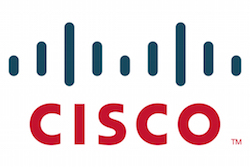The proposed ‘merger’ was announced some 20 months ago, but the parties disagree about whether the necessary regulatory approvals were not obtained in time.
Acacia Communications has terminated its merger agreement with Cisco Systems. The proposed merger was announced in July 2019 and Acacia says it has exercised its right to terminate the proposed transaction because approval was not received from the Chinese government’s State Administration for Market Regulation within the period agreed.
Cisco doesn’t agree. According to Bloomberg, it is seeking confirmation from a court in Delaware that it met “all conditions for closing” the deal, including approval from China’s regulator. Cisco has informed Acacia that it may dispute its right to terminate the merger agreement. Acacia says it intends to defend any such claims.
Rationale
The rationale behind Cisco Systems buying optical networking firm Acacia Communications for $2.6 billion was to help it make inroads into the cloud market.
Cisco is the biggest provider of routers, switches and other computer networking elements, which make up a substantial part of the internet’s backbone infrastructure and many enterprises’ networks, but it is looking for growth by selling to hyperscale data-centre owners, like Amazon.com and Google.
Acacia manufactures chips and modules that turn optical signals into data, which is intrinsic to providing super-fast links between data centres. Woo Jin Ho, Senior Technology Analyst at Bloomberg Intelligence, was quoted saying at the time of the announcement, “Bringing Acacia’s high-speed digital signal processing (DSP) technologies in-house [would allow] Cisco to better compete with peers, such as Ciena”.
Other analysts noted that Acacia’s customer base might be less than keen to buy from Cisco, which they view as a competitor. It includes Nokia, Huawei Technologies and ZTE Corp.
At the time the intended acquisition was announced, Cisco accounted for about 18% of Acacia’s revenue, according to Bloomberg’s supply chain analysis.
Bad timing?
Whatever the outcome, the transaction faced serious hurdles given the escalating trade war between the Trump Administration and China. Just last week, after some dithering, the New York Stock Exchange moved to delist China Mobile, China Telecom and China Unicom to comply with an Executive Order issued by the outgoing president last November.
Cisco has almost no penetration of the Chinese market and American tech companies are being shut out of the Chinese market in response to what it sees as politically motivated, hostile acts, and especially the West’s treatment of Huawei at the Trump Administration’s urging. It has vowed to retaliate.
Before the Capitol riots last week, President Trump was expected to ratchet up the trading tensions between the two countries further before his exit as President. At the time of writing, it was not clear whether he would remain in office until 20 January – the inauguration of the Biden Presidency.


